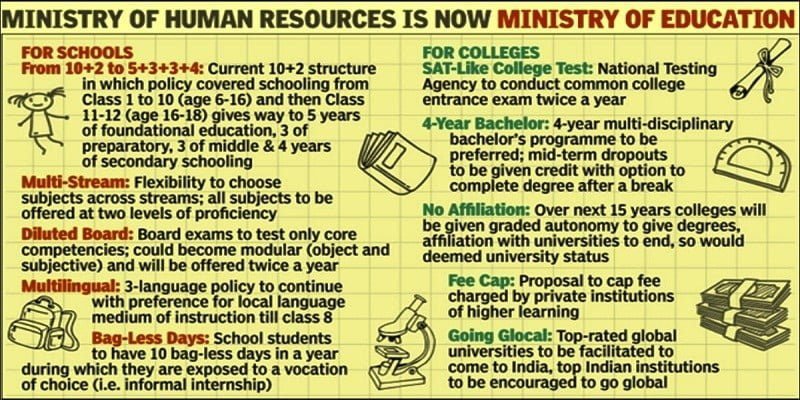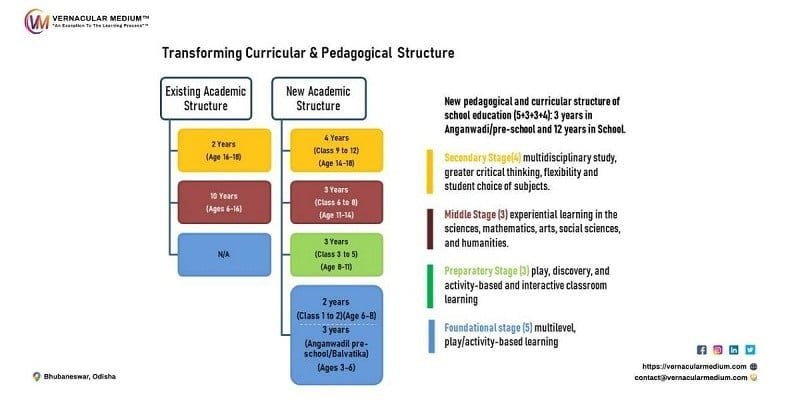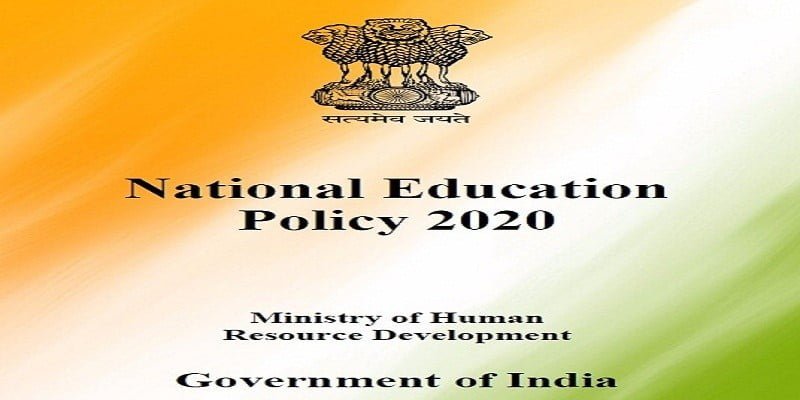Education And Its Significance In the 21st Century:
Education in the 21st century has become an essential learning tool that can’t be denied or ignored anymore. We seriously need some multidisciplinary advanced subjects to be taught. to our younger masses in order to face the upcoming challenges in this modern world. The Goal 4 (SDG4) of the 2030 Agenda for Sustainable Development, adopted by India in 2015 – seeks to “Ensure Inclusive and Equitable Quality Education and Promote Lifelong Learning Opportunities For All” by 2030. Such a mammoth task can be fulfilled by restoring the current Education System and the Infrastructures related to it. We strongly need a holistic, integrated, discovery-oriented, discussion-based, flexible, and enjoyable Education System which must shape character, and enable learners to be ethical, rational, and compassionate while preparing them for a promising career.
Previous Policies Enacted For Education Sector In India:
The enactment of previous policies on education has focused largely on issues of access and equity. The Right of Children to Free and Compulsory Education Act 2009 is a major expansion since the last policy (NPE 1986/92) in India. The unfinished agenda of the National Policy on Education 1986, modified in 1992 (NPE 1986/92), is appropriately dealt with in this new policy. This National Education Policy 2020 is the first education policy of the 21st century in our country having the vision to instill among the learners a deep-rooted pride in being Indian, not only in thought, but also in spirit, intellect, and deeds, as well as to develop knowledge, skills, and values that support responsible commitment to human rights, sustainable development, living, and global well-being.
Basics Of National Education Policy (Nep) 2020:
NEP 2020: Transforming School Education:
In this section, we will see the basics of NEP 2020. The major change that NEP deal with is a completely new instructional and curricular restructuring of School Education into 5+3+3+4 covering ages 3-18 instead of the traditional 10+2 structure with an Early Childhood Care Education.
The National Education Policy 2020 introduces a revamped schooling system, divided into distinct stages. These stages are ‘Foundational’ (ages 3 to 8, including 2 years of preschool), ‘Preparatory’ (ages 8 to 11), ‘Middle’ (ages 11 to 14), and ‘Secondary’ (ages 14 to 18).
The ‘Foundational Stage’ spans five years and emphasizes flexible, multilevel, play-based and activity-based learning. ECCE-qualified teachers will handle the curriculum and pedagogy during this stage. This approach fosters holistic development and ensures a strong foundation for children’s educational journey.
By implementing this new schooling system, the National Education Policy aims to provide age-appropriate learning experiences, tailored to each stage of a child’s development.
Progressive Education: Preparing for Specialization:
The ‘Preparatory Stage’ will consist of three years of education which will also begin to incorporate some light textbooks as well as aspects of more formal but interactive classroom learning, in order to lay a solid groundwork across subjects, including reading, writing, speaking, physical education, art, languages, science, and mathematics. The ‘Middle Stage’ will comprise three years of education with the introduction of subject teachers in subjects like science, mathematics, arts, social science, humanities, etc. with Pragmatic Learning and Explorations of different subjects.
Empowering Students: Flexible Secondary Education:
The Secondary Stage will comprise four years of multidisciplinary study with greater depth, greater rational thinking, greater consideration of life objectives, greater flexibility, and student choice of subjects where they will have the option of exiting after Grade 10 and re-entering in the next phase to pursue vocational or any other courses available in Grades 11-12. The National Education Policy 2020 introduces a holistic approach to the school curriculum, going beyond traditional subjects. Alongside occupational skill training courses like digital literacy, coding, and computational thinking, the curriculum now incorporates sports, music, physical education, and arts and crafts. This inclusive approach ensures a well-rounded education, considering age-appropriate and safe activities.

Nep 2020 Restructures The Higher Education In India:
Expanding Language and Degree Options:
In addition to high-quality offerings in Indian languages and English, foreign languages such as Korean, Japanese, Thai, French, German, Spanish, Portuguese, and Russian will also be offered at the secondary level for students to enrich their global knowledge. Apart from this Indian Sign Language (ISL) will be standardized across the country. In the ‘Higher Education’ Sector the structure and lengths of degree programs shall be adjusted accordingly. The undergraduate degree will be of either a 3 or 4-year duration with multiple withdrawal options with appropriate certifications. For example a certificate after completing 1 year in a discipline or field including vocational and professional areas or a diploma after 2 years of study or a Bachelor’s degree after a 3-year program.
Flexible Higher Education: Diverse Pathways:
Higher Education Institutes (HEIs) will have the flexibilities to offer different designs of Master’s programs i.e. (a) there may be a 2-year program with the second year devoted entirely to research for those who have completed the 3-year Bachelor’s program; (b) for students completing a 4-year Bachelor’s program with Research, there could be a 1-year Master’s program; and (c) there may be an integrated 5-year Bachelor’s/Master’s program. Undertaking a Ph.D. shall require either a Master’s degree or a 4-year Bachelor’s degree with Research. The MPhil program shall be discontinued. Instead of the Choice-Based Credit System (CBCS), HEIs shall move to a criterion-based grading system. This can assess student achievement based on the learning goals for each program. Then making the system fairer and outcomes more comparable. NEP 2020 promises more and more vocational degree courses, innovation and incubation initiatives, required skill training programs, and many more things, etc.

Is It Practically Possible For Nep 2020 To Bring Changes?
NEP 2020: Promises and Challenges:
It seems as if GoI has promised so many things through NEP 2020. The National Education Policy 2020 emphasizes the importance of quality teachers and professors in the education system. Teachers and professors receive specific guidelines in Teachers’ Training Institutes (TTIs) to ensure their professional development. As part of the Digital India initiative, schools, and colleges integrate AI technology and Virtual Learning methods. This integration aims to enhance teaching practices and create dynamic learning environments for students. This integration aims to enhance the learning experience and provide innovative teaching approaches. Furthermore, the newly introduced preschool program includes training for village Anganwadi workers. Also empowering them to contribute effectively to early childhood education. Though all these promises seem so classy, do you really think they are practically possible? Mid-day meal scheme has been a pan-India failure.
Challenges Ahead for NEP 2020:
Students’ attendance ratios across schools are very low. The dropout ratios of SC/ST or EWS students are very high before they reach the secondary level. Internet connectivity in rural areas is a major problem and the lack of digital devices may create obstruct the digitization of School Education. Many govt. schools are facing infrastructure problems where AI and Virtual Technology appear to be a hollow promise. Our current teachers are not well advanced in training and many schools are running with vacant teachers’ posts. We can only hope in the name of Govt. machinery to resolve some practical core issues. That they can do first before proceeding to implement the futuristic NEP 2020.
**********
Disclaimer:- Views expressed are the author’s own.




Wonderful peice of article
We are humbled.